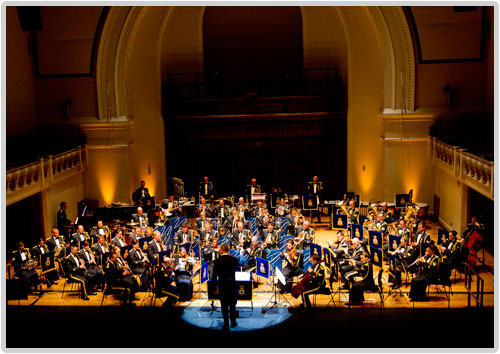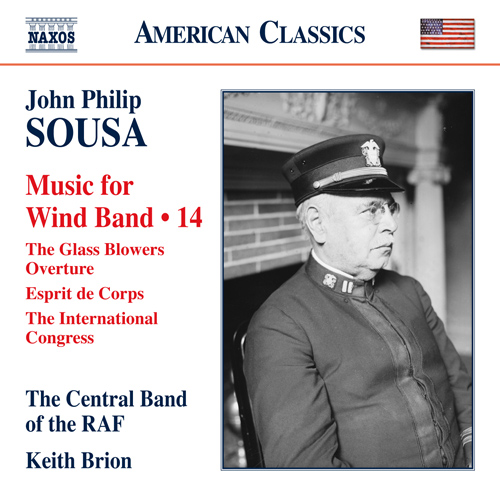SOUSA, J.P.: Music for Wind Band, Vol. 14 (Central Band of the Royal Air Force, Brion)
The unprecedented popularity enjoyed by John Philip Sousa was garnered through constant national and international touring with a band that included some of the very best American instrumentalists. Volume 14 of this series includes brilliant show overtures, such as The Glass Blowers, theatrical marches such as The Lambs, the suite El Capitan and His Friends, from three of Sousa’s remarkably successful operettas and, last but not least, the 22-year-old composer’s extraordinary collection of patriotic songs of many countries, The International Congress, which ends with The Star Spangled Banner set against the violin obbligato from Wagner’s Tannhauser.
Music has been a part of the Royal Air Force since 1912, when the service existed as the Royal Flying Corps. In 1918 the Royal Air Force was formed and the Central Band was established shortly thereafter. In 1922 it was the first military band to be broadcast on BBC radio and continues to be frequently featured in that medium. The band is also well-recognised for its recording prowess. Since 1955, when it became the first military band to make an LP, the band has remained at the forefront of contemporary military band recording. Musicians from the Central Band are also required to support British forces on operations abroad. Personnel are being deployed in rôles as diverse as detainee handlers in Afghanistan and ambulance drivers in the Falkland Islands. Nevertheless, whether working as musicians or medics, their aim remains the same—to display, through their conduct and performance, the excellence for which the Royal Air Force has become renowned.

|

Keith Brion leads his own New Sousa Band and is a frequent conductor of light music orchestral concerts throughout America and internationally. He is a specialist in Sousa’s period style and has published numerous performing editions of his music.
Sousaphonic Celebrations: Keith Brion talks to Jeremy Siepmann

Of mixed Portuguese and Bavarian origin, Sousa was born in Washington, D.C. and made his career as a musician, joining his father as a bandsman in the Marines. His subsequent career brought involvement with the theatre, but he is best remembered as one of the most successful of all march composers.
Stage Works and Songs
Sousa’s earlier career, after leaving the Marines in 1874, was as a conductor of theatre orchestras. He wrote a number of operettas, incidental music and songs of popular appeal.
Instrumental Music
Sousa spent a dozen years, from 1880 to 1892, as conductor of the U.S. Marine Band. Thereafter he directed his own ensemble, Sousa’s Band, with which he won overwhelming popularity at home and abroad. His marches remain generally familiar, often providing the framework for imaginative texts supplied by members of the armed forces both in America and elsewhere.































